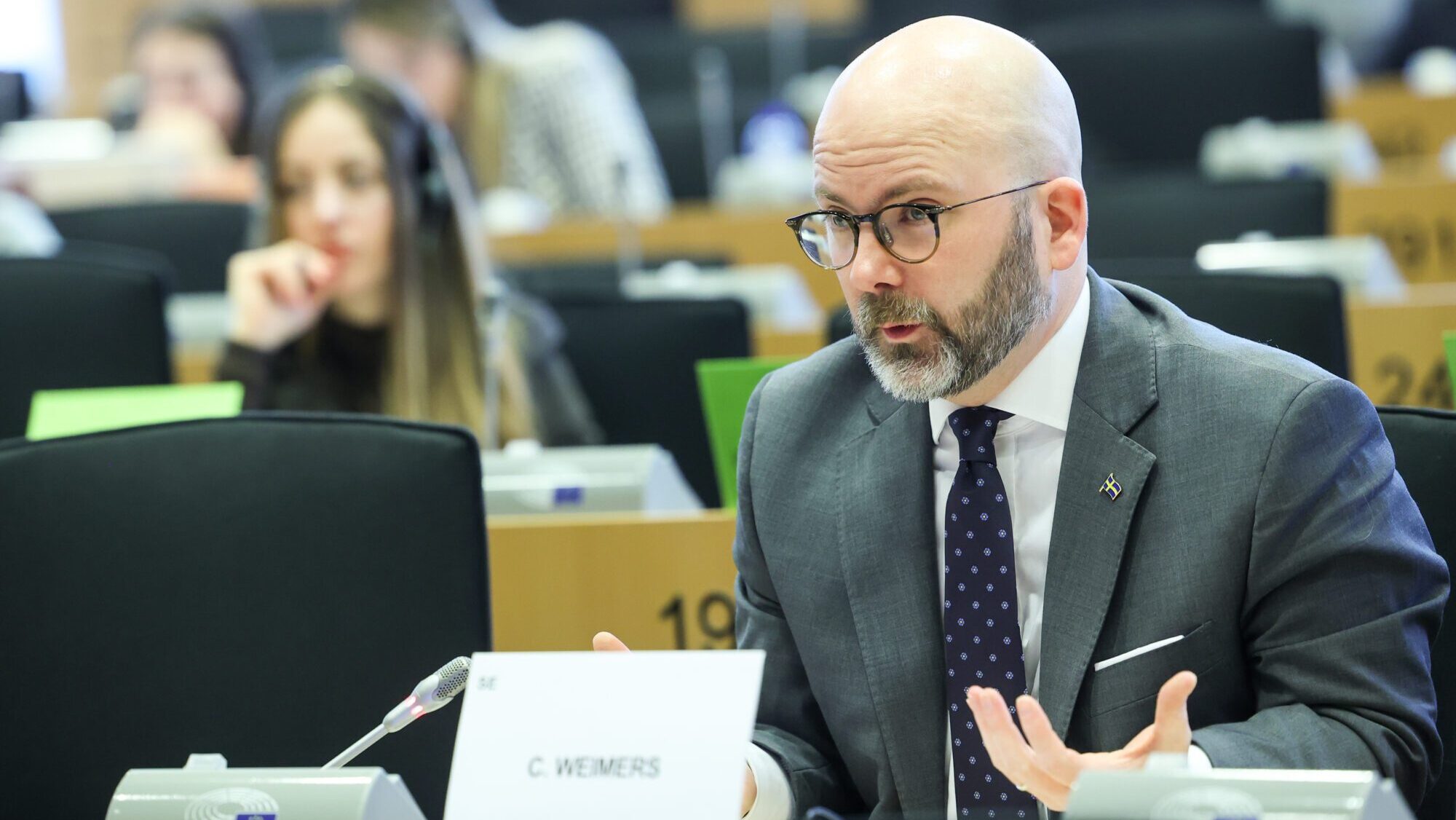
MEP Charlie Weimers (SD/ECR)
Photo: Alexis Haulot © European Union 2023 – Source: EP
Tens of millions of euros have been disbursed by Brussels toward an ongoing campaign that’s designed—officially at least—to persuade more people to vote in the EU elections as well as to raise awareness about the benefits of the European Union.
However, according to MEP Charlie Weimers, lead candidate of the national conservative Sweden Democrats party, the campaign is nothing but a thinly veiled effort to boost the mainstream parties’ electoral chances and deter people from voting for Eurosceptic outfits.
“It is sad that the media does not pay attention to the EU’s influence campaign,” Weimers told the Swedish website Samnytt. “The EU funds advertising to reach out to voters who tend to vote for parties that want to shift more power to Brussels, and gives financial contributions to the media to cover the European Parliament while spinning political decisions to portray the EU in a positive light.”
The goal is to influence election results in a direction favorable to the bureaucracy with citizens’ tax money.
EU finansierar reklam för att få ut väljargrupper som tenderar att rösta för partier som vill flytta mer makt till Bryssel, ger finansiella bidrag till media för att bevaka EU-parlamentet
— Charlie Weimers MEP 🇸🇪 (@weimers) May 28, 2024
och spinner politiska beslut för att framställa EU i positiv dager.
Målet är att påverka… https://t.co/skfk0gKt3o
Data on the current numbers is not available to the public, but according to documents seen by the news outlet, Brussels disbursed over €30 million for the same purpose between 2020 and 2022 to about 300 journalists, opinion makers, online influencers, media companies, and similar actors, who then spread the message throughout the bloc..
The plan is simple: focus on all the good things the EU does, which in turn will discourage people from supporting EU-critical parties and politicians. The current budget for this campaign could be much higher than two years ago, as the Parliament has decided that the messaging will need to be intensified as the elections approach.
The EU’s “communication strategy” for the 2024 EU elections—approved by the Parliament’s Bureau as early as June 2022—includes increased ‘get the vote out’ advertising as well as further funds for “media support,” which outright requires the participating journalists to spin the narrative of whatever story they write in the EU’s favor during the election campaign period.
“The messaging should be regularly updated with the view to link it to current issues and the overall narrative should highlight what Europe does for” citizens and member states, the document notes.
This communication strategy was approved by every parliamentary group in Brussels except the two right-wing populist blocs, Weimers’ European Conservative and Reformist (ECR) group which voted against, and the Identity and Democracy (ID) group which is not even represented in the Parliament’s Bureau.
The Bureau, which decides on the chamber’s internal rules and budgetary matters, is made up of the Parliament’s president and fourteen vice-presidents and is heavily left-leaning. It currently consists of five social democrat (S&D) MEPs, four (including President Metsola) belonging to the center-right EPP, three from the liberal Renew party, and lone MEPs each representing the Greens, the far Left, and the ECR.
Drafted by this Bureau, it’s no surprise that Brussels’ communication strategy for the 2024 elections is going to favor the establishment.
“They want to target young people and [already] pro-EU groups to get them out to vote,” another source from ECR told Samnytt. “In my opinion, this EU campaign is the biggest foreign influence campaign on a Swedish election ever.”
What makes these revelations even more ironic is that Brussels has been talking about countering foreign influence operations on EU (and even US) soil for months, yet it appears to be engaged in the same thing inside its member states.
